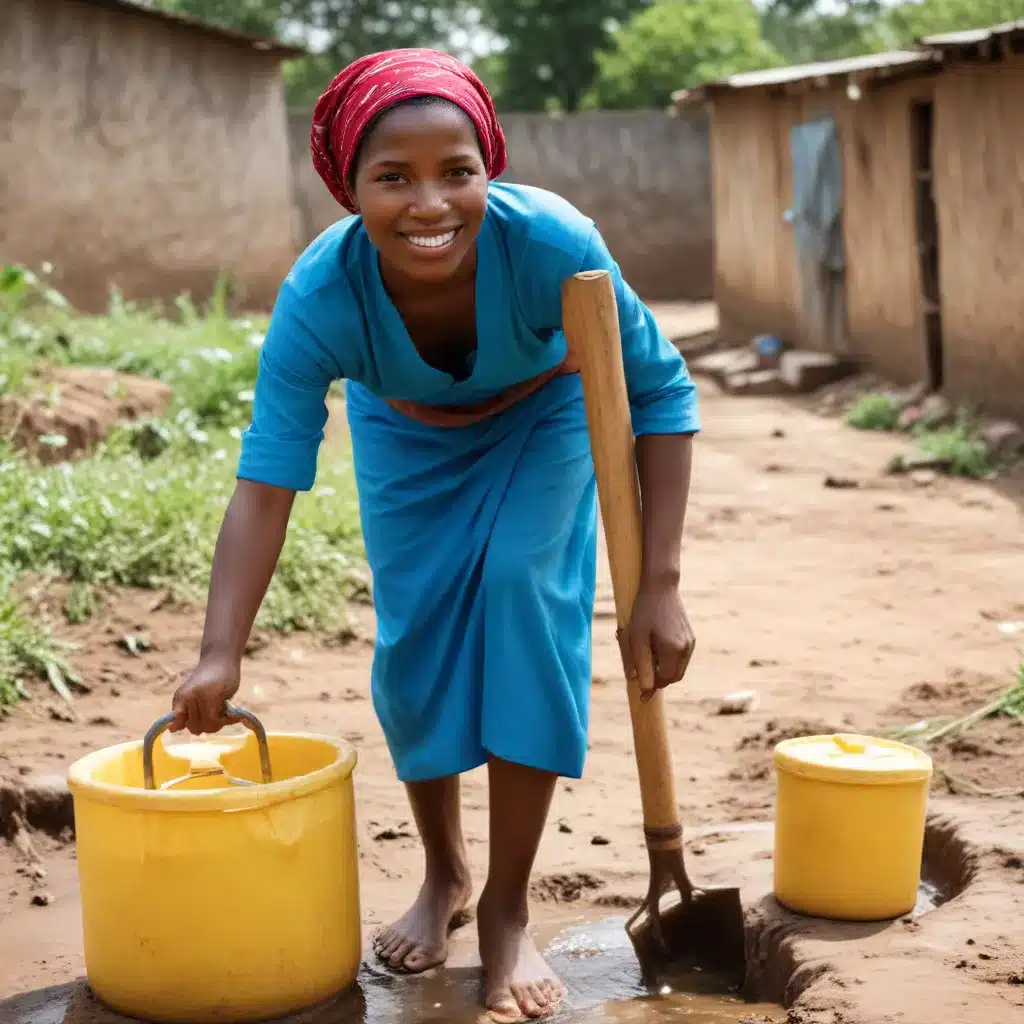
Unleashing the Power of Women in Water, Sanitation, and Hygiene
Women play a crucial role in shaping the health, well-being, and sustainability of communities worldwide. Yet, their voices and leadership have long been undervalued and underutilized, especially in the realm of water, sanitation, and hygiene (WASH) services. This needs to change. By empowering women as change agents, we can unlock transformative progress in addressing global WASH challenges.
At the heart of this issue lies a simple but profound truth: women are often the primary managers and users of household water resources. They are the ones responsible for collecting, storing, and using water for domestic purposes, as well as maintaining sanitation and hygiene practices. This deep, firsthand understanding of WASH needs and challenges uniquely positions women to drive meaningful, sustainable change.
Amplifying Women’s Voices and Leadership
Recognizing the critical role of women, the Joint Action for Water initiative has been at the forefront of efforts to empower women as change agents for WASH. By elevating women’s voices, fostering their leadership, and supporting their active participation in WASH decision-making, this initiative has catalyzed lasting improvements in communities around the world.
One such example is the Women + Water Global Development Alliance, a collaborative effort between USAID, Gap Inc., and other partners. This initiative has empowered women in India to become champions for WASH management in their communities. A key element of the program’s success was its commitment to adaptive management, which allowed the team to make course corrections based on feedback and learning.
“The theory of change did not properly address WASH governance issues. Women + Water then engaged a number of stakeholders to determine how to adaptively manage programming, ultimately bringing on a new partner to the consortium. The new partner helped increase community engagement with impressive results.”
As a result of this adaptability, the number of people empowered to improve their access to drinking water and sanitation through the Alliance increased from just under 70,000 to more than 2 million by the end of the activity.
Harnessing Women’s Unique Strengths
Women’s inherent strengths and perspectives make them invaluable assets in the pursuit of sustainable WASH solutions. Several key factors highlight the critical role of women as change agents:
1. Intimate Understanding of WASH Needs
Women’s day-to-day experiences with water collection, sanitation, and hygiene practices give them a deep, nuanced understanding of the challenges faced by their communities. This firsthand knowledge is essential for designing and implementing effective, context-appropriate WASH interventions.
2. Trusted Relationships and Community Connections
Women often have strong social connections and trusted relationships within their communities. This social capital allows them to effectively mobilize community members, raise awareness, and drive behavioral change around WASH issues.
3. Holistic Approach to WASH and Health
Women typically take a more comprehensive view of WASH, recognizing its interconnectedness with other areas of community well-being, such as health, education, and economic empowerment. This holistic perspective is crucial for developing integrated, sustainable WASH solutions.
4. Commitment to Sustainability
Studies have shown that when women are involved in the early stages of WASH project development, the long-term sustainability of those projects is significantly enhanced. Women’s vested interest in the well-being of their communities drives them to ensure the ongoing maintenance and management of WASH infrastructure and services.
Overcoming Barriers to Women’s Participation
Despite the clear benefits of empowering women as change agents, numerous barriers still hinder their full participation in WASH decision-making and leadership. These barriers include:
- Cultural and social norms: Deeply entrenched gender biases and power structures that limit women’s access to education, training, and leadership opportunities.
- Limited access to resources: Lack of access to financial resources, technology, and information that would enable women to take on more active roles in WASH initiatives.
- Underrepresentation in WASH professions: Low participation of women in technical, managerial, and policymaking positions within the WASH sector.
To address these challenges, WASH programs must adopt a gender-transformative approach that actively challenges and changes the social, cultural, and institutional barriers that prevent women from fully engaging as change agents. This includes:
- Providing targeted training and capacity-building opportunities for women
- Ensuring equitable representation of women in WASH decision-making and leadership roles
- Advocating for policies and regulations that promote gender equality in the WASH sector
- Addressing harmful social norms and gender stereotypes through community-based awareness campaigns
Catalyzing Sustainable Change through Women’s Empowerment
When women are empowered as change agents, the ripple effects are profound and far-reaching. Improved access to clean water, adequate sanitation, and good hygiene practices not only enhance community health and well-being but also unlock a range of other social and economic benefits:
- Better health outcomes: Reduced incidence of waterborne diseases, improved maternal and child health, and overall disease prevention.
- Enhanced educational opportunities: Girls and women can spend more time in school and pursue educational and professional goals when they are not burdened by the task of water collection.
- Increased economic productivity: Women can devote more time to income-generating activities and entrepreneurship when they have reliable access to WASH services.
- Strengthened social capital: Women’s leadership and active participation in WASH initiatives foster greater community cohesion, cooperation, and resilience.
- Increased dignity and empowerment: Access to safe, private, and affordable WASH services helps women and girls maintain their dignity and personal security, leading to greater self-confidence and agency.
Conclusion: A Future Driven by Women’s Leadership
The transformative potential of empowering women as change agents for water, sanitation, and hygiene cannot be overstated. By amplifying women’s voices, harnessing their unique strengths, and breaking down the barriers to their participation, we can unlock sustainable, equitable, and resilient WASH solutions that benefit entire communities.
The Joint Action for Water initiative and its partners are at the forefront of this movement, demonstrating the power of collaborative, adaptive, and gender-transformative approaches to WASH programming. As we continue to build on these successes, we must remain steadfast in our commitment to placing women at the heart of the WASH revolution, for the betterment of all.

